Mugwort (artemisia vulgaris) is a herb known for its energy-boosting effects, especially when taken as a tonic (1). When it’s ingested, it can cure a number of digestive disorders and help fight off infections.
Mugwort is also taken by women who experience irregular periods and other issues related to the menstrual cycle. When applied topically, mugwort helps to relieve itchiness that can occur in burn scars.
Below you’ll find the best mugwort supplements ranked and reviewed by our expert health panel.
Research
Rankings
1. Dream Leaf Organic Mugwort Capsules
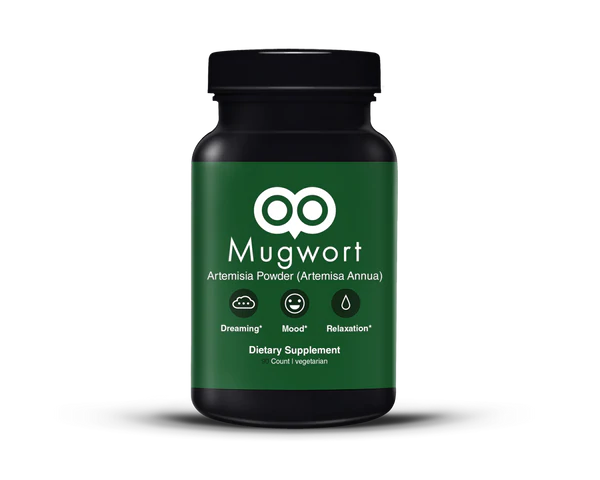
Dream Leaf organic capsules provide 450mg of mugwort per serving, making it ideal for relaxation, better sleep, and enhanced dreams. The organic certification, the simple formulation, and the solid dosage level earn it the top spot in our rankings.
2. HawaiiPharm Mugwort Extract
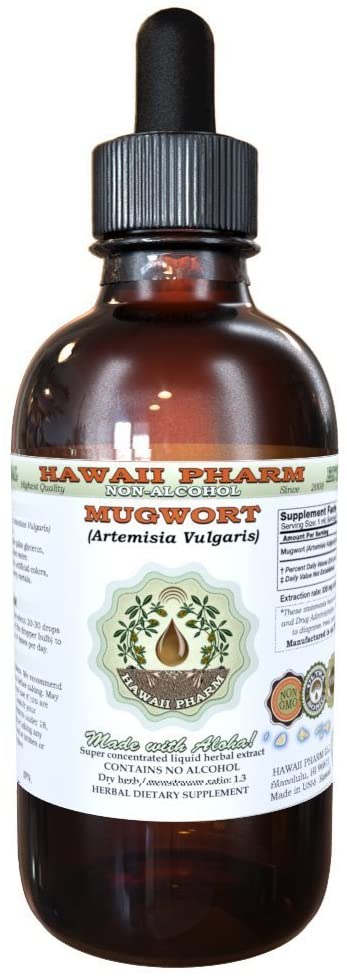
HawaiiPharm mugwort is a liquid extract that comes in a 4-ounce tincture. As such, you can easily add mugwort to any drink. The fact that this liquid extract does not rely on alcohol as a solvent makes it our favorite pick when it comes to liquid-form mugwort.
3. Florida Herbs Mugwort Extract
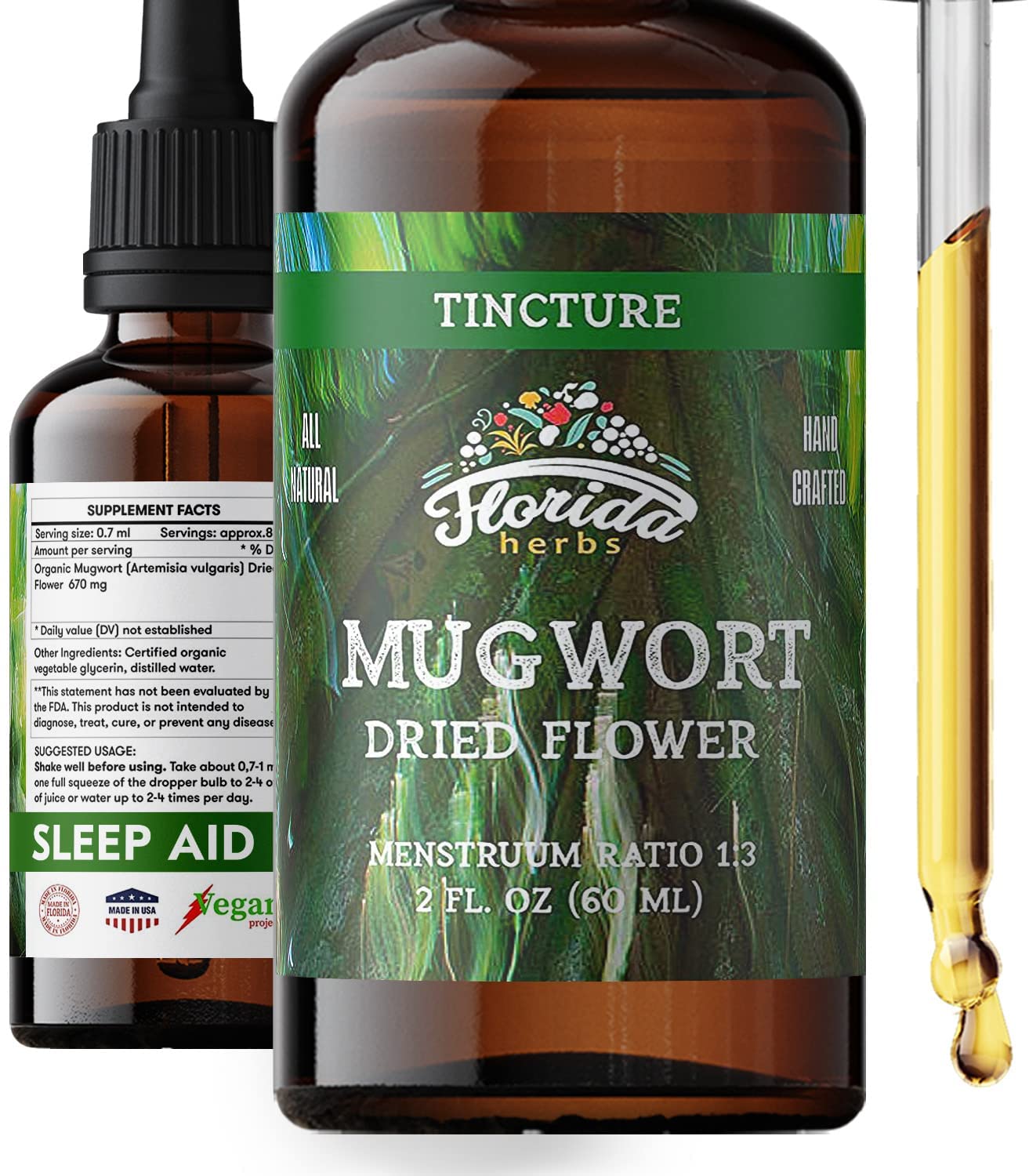
Florida Herbs makes a liquid mugwort supplement that’s designed for a wide range of use cases. The liquid format is nice, though some users may prefer the ease of use with capsule-based mugwort supplements instead, if having a broad range of possible dosages is less valuable than convenience.
4. Holtcity Dried Mugwort Leaves
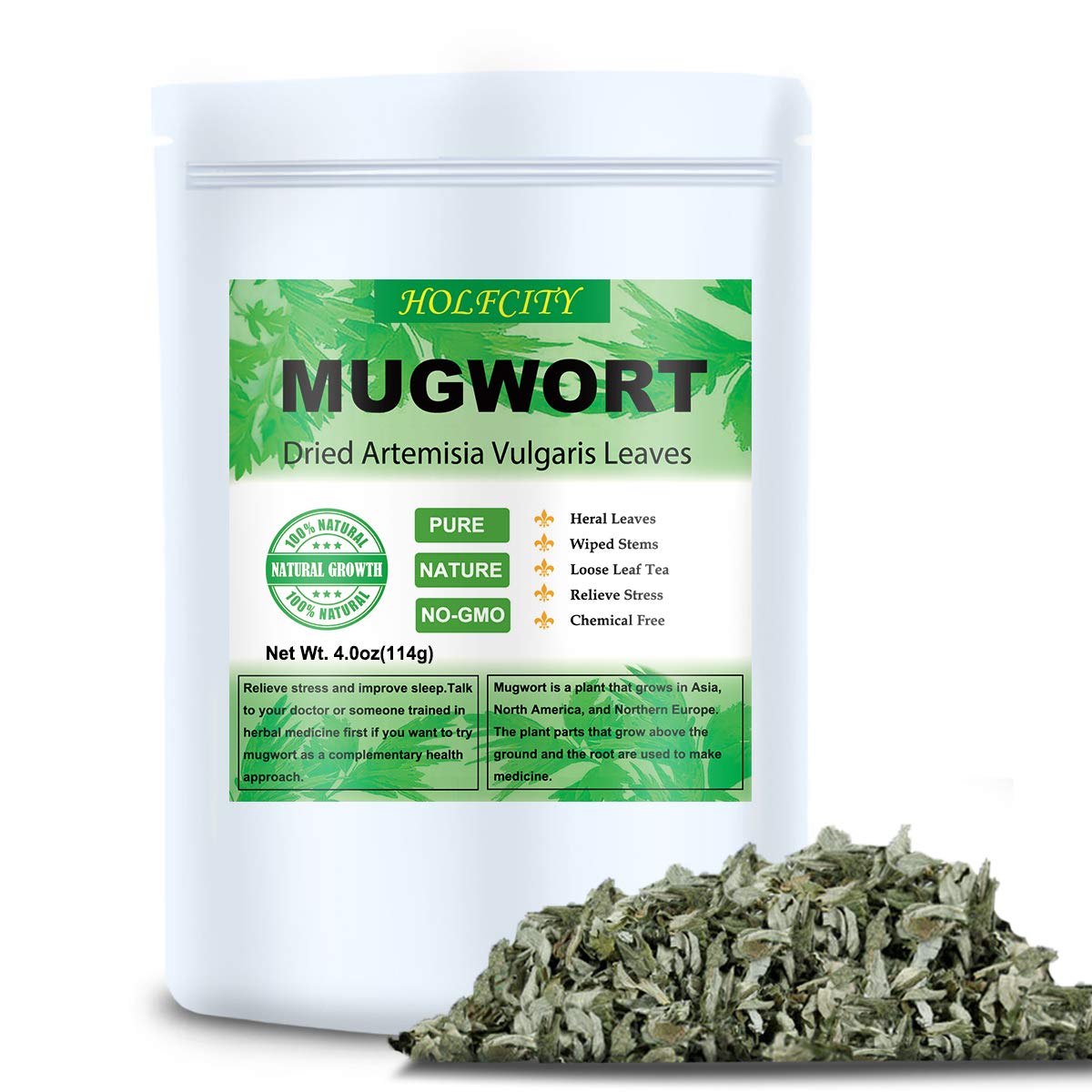
Holtcity dried mugwort leaves can easily be steeped in a custom tea, or combined with other loose leaf varieties if you want to make your own herbal remedies.
The bag is resealable for easy storage, and the mugwort is especially good for helping you sleep more easily or otherwise relax.
5. Naturetition Mugwort
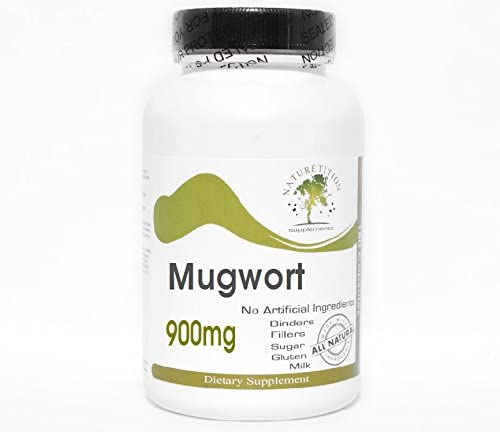
Naturetition makes a potent mugwort capsule that delivers 900 mg of mugwort powder per serving. Its formulation is simple and clean, making it a great choice if you are looking for a seriously high dose of mugwort without any additives.
6. Buddha Teas Organic Mugwort
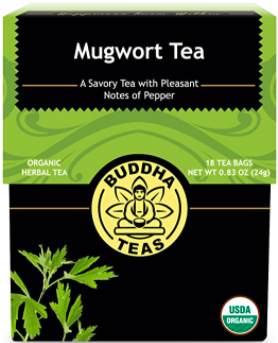
Buddha Teas provides another high-quality mugwort tea that comes in individual bags for convenience.
The organic tea is made with no artificial flavors, preservatives or GMOs. With bleach free tea bags and no caffeine, you can enjoy a cup of mugwort tea at any time of the day.
7. Thida Mugwort Tea
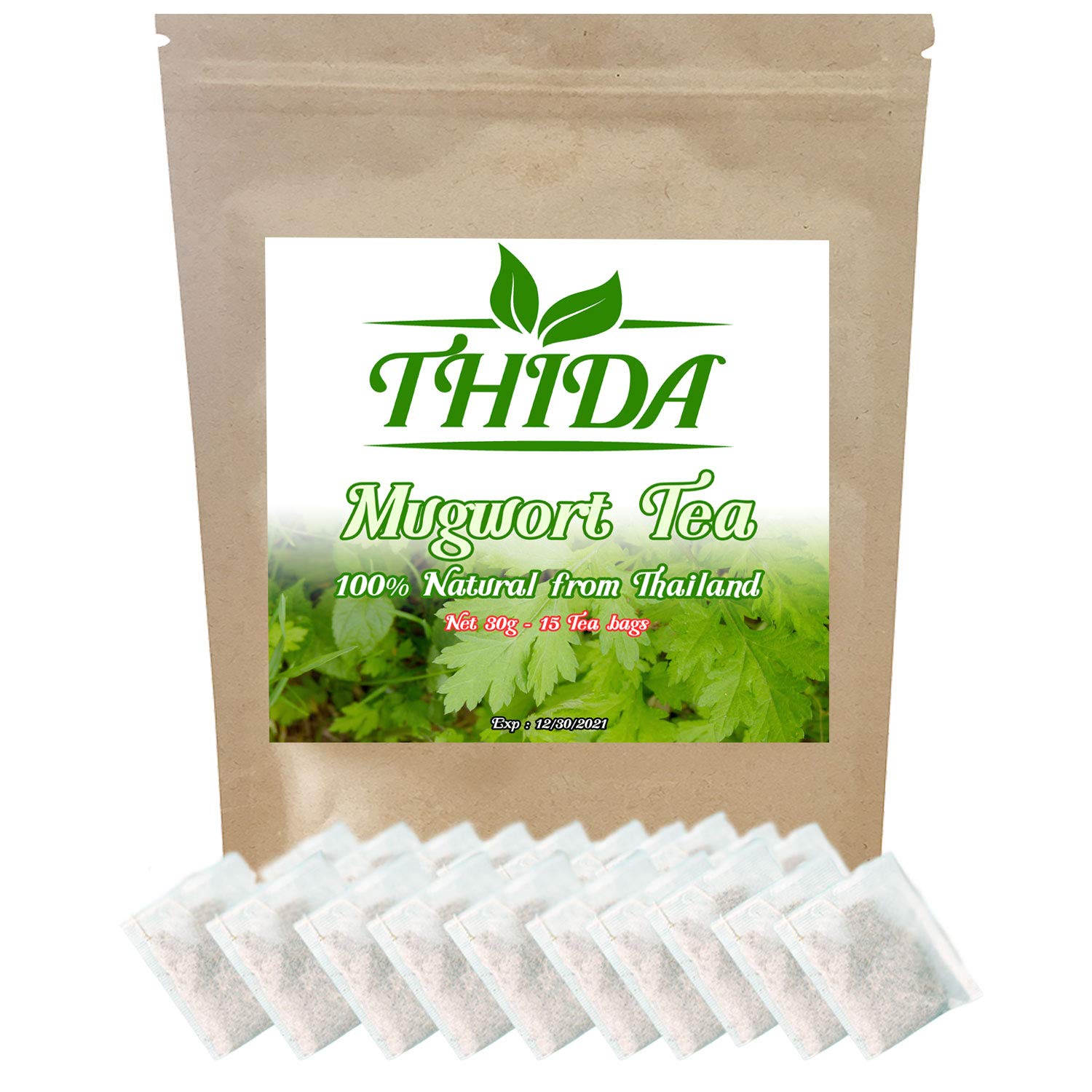
Thida makes mugwort tea that’s prepackaged into individual tea satchels. While this packaging means that this mugwort supplement doesn’t have the same flexibility as loose-leaf or liquid mugwort supplements, it’s nevertheless a convenient option if you want to integrate mugwort tea into your daily routine without the fuss of powder, liquid, or loose leaf versions of mugwort.
8. Solo Therapy Dried Mugwort
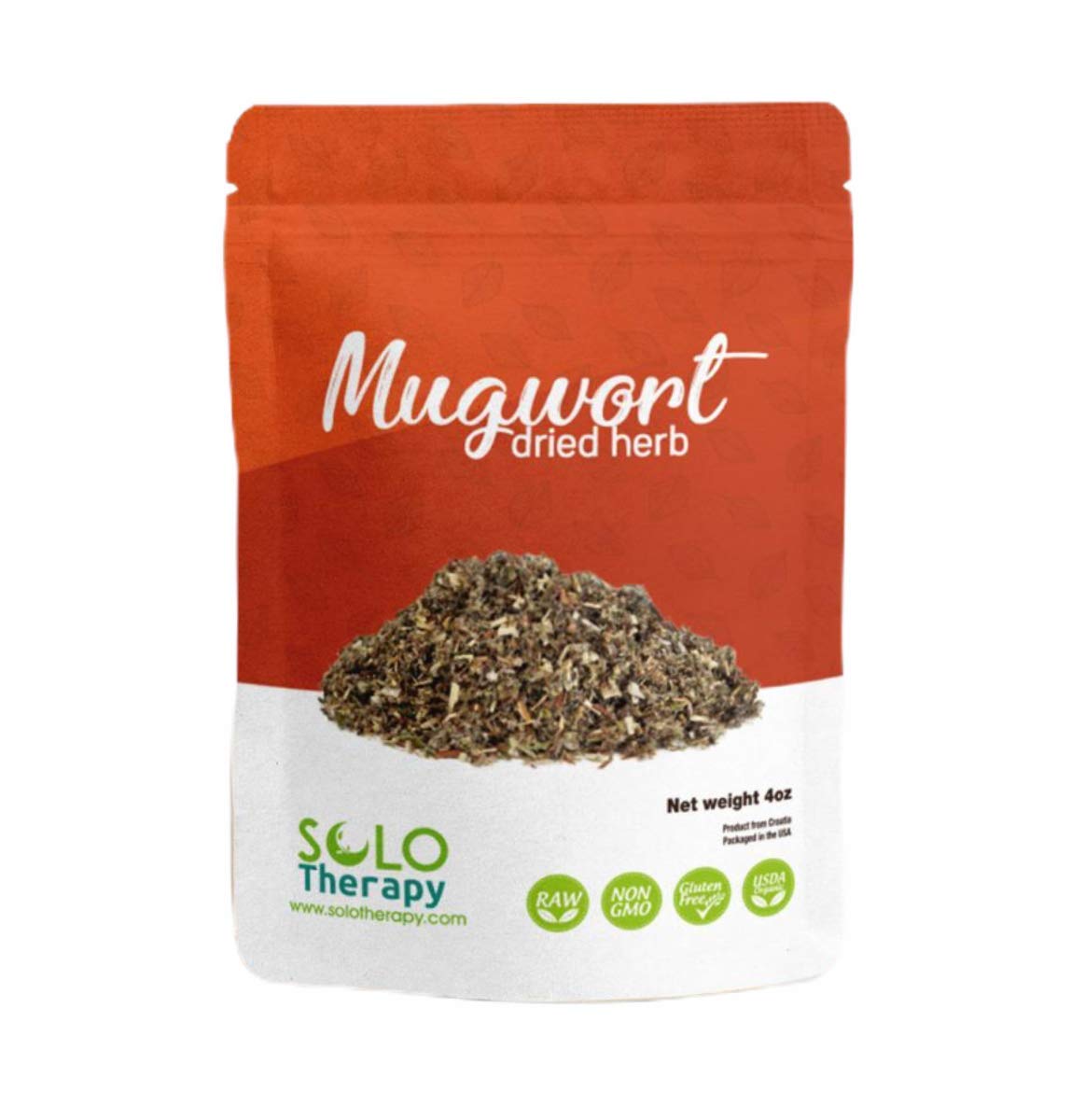
Solo Therapy makes a pretty solid dried mugwort supplement that’s well-suited for making loose-leaf mugwort tea. The only reason it ends up a bit lower in the rankings is because it is not organically certified like some of the competition.
9. TerraVita Artemisia Combination Capsules
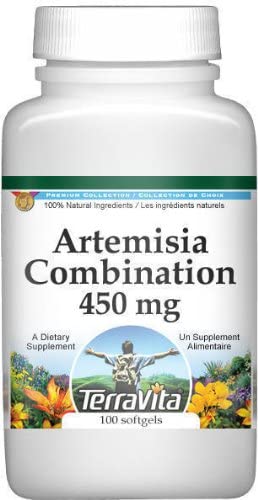
TerraVita mugwort contains both mugwort and wormwood, which some people take in combination for better sleep, relaxation, and dream enhancement. It’s a niche use case, but if mugwort and wormwood are both of interest to you, it’s a good option.
10. K-Herb Korean Mugwort Powder
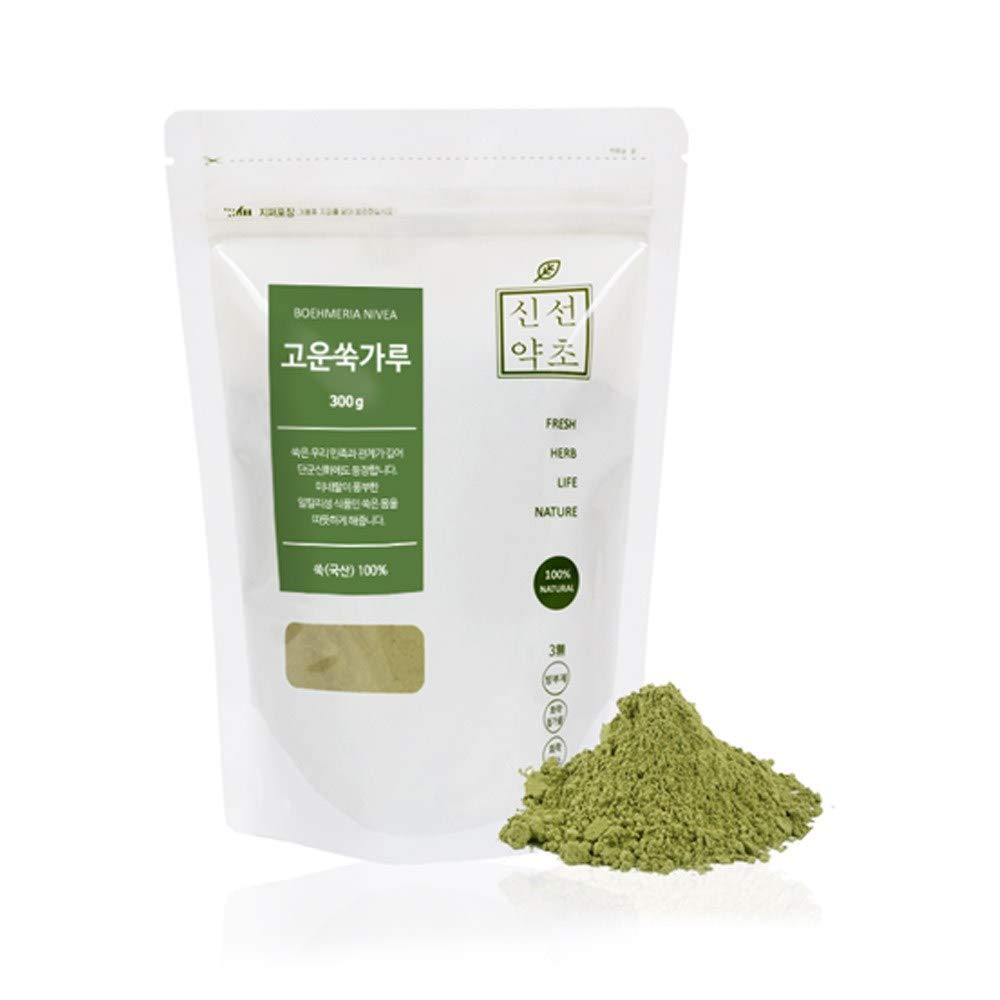
Looking to make your own supplement stacks that include mugwort? K-Herb makes a powder-form mugwort that’s perfectly suited for this use case. The powder-form mugwort blends up easily with other supplements or can be included in custom capsules. The primary downside is that for most people, the mess and the extra work compared to a capsule-based or liquid mugwort supplement aren’t worth it.
Category winners
Best mugwort overall: Dream Leaf Organic Mugwort Capsules
Dream Leaf makes a mugwort supplement that’s geared towards promoting relaxation, mood elevation, and sleep enhancement. The ease of use and simplicity make it our favorite mugwort supplement.
Best mugwort for boosting energy levels: Naturetition Mugwort
Naturetition Mugwort comes in a super-high dosage capsule that delivers 900 mg of mugwort per serving. If you are looking to use mugwort to have more energy and have a better mood, the high dosage of this supplement goes a long way towards that goal.
Best mugwort for digestive health: HawaiiPharm Mugwort Extract
When it comes to using mugwort for its digestive properties, we recommend a liquid supplement. That’s because liquid supplements are more readily-absorbed and allow you to adjust the dosage across a wider range than a capsule-based supplement—and among liquid mugwort supplements, HawaiiPharm is the best for digestive health.
Best mugwort for tea: Holfcity Dried Mugwort Leaves
Holfcity produces a bulk loose-leaf mugwort supplement that’s perfect for steeping your own tea at home. You can control the dosage more easily with a loose-leaf tea than prepackaged tea bags, which earns this product our recommendation for mugwort tea.
Best liquid mugwort: HawaiiPharm Mugwort Extract
HawaiiPharm makes an excellent liquid mugwort extract that doesn’t rely on alcohol as a solvent, unlike some of its competition. This liquid mugwort is the perfect choice if you want the freedom to control your dosage, or if you want to mix mugwort into shakes, smoothies, or alongside other liquid supplements.
Best mugwort for sleep: Dream Leaf Organic Mugwort Capsules
One of mugwort’s most distinctive properties is its reputation to enhance sleep, generate more vivid dreams, and enable lucid dreaming. For this use case, Dream Leaf is perfect—their organic mugwort capsules are designed with dosages appropriate for taking right before bed.
Who should buy mugwort?
Mugwort is safe for most individuals and tends to affect everyone differently, which is why some people swear by its energy-boosting effects, while others only experience relaxing benefits. That being said, it’s very popular in crowds who suffer from digestive disorders, helping to ease these symptoms. Menstruating women can also use this herb to treat cramps.
Because of the varied nature of its effects, it’s recommended that anyone wanting to try mugwort should start with small doses, titrating up. Pregnant women should avoid mugwort as it may cause miscarriages. People with food allergies should also be careful with mugwort as it has been shown to cause an allergic reaction in people who already have certain food allergies.
While it has no drug interactions, you should speak to your doctor before starting a supplement routine containing mugwort – especially if you are currently taking any prescription medication.
How we ranked
Mugwort supplements come in a variety of forms, including capsules, teas, and tinctures. Capsules are great if you want a direct injection of mugwort in your system. These normally come in easy to digest veggie capsules and are the preferred choice since they’re accurately dosed and travel well.
Mugwort teas are a lot more common and are characterized by a moderately sweet aroma and flavor. They combine well with other loose leaf teas making them a versatile herbal remedy. Oil tinctures are the least popular option and designed to be placed under your tongue or otherwise mixed into your food and drink. Its lack of dosing accuracy is why you won’t find many liquid entries on our list.
Regarding dosages, 200-1000mg was ideal for capsules, with the lower end being optimal. This allowed for better dose-tailoring and also limited side effects, especially for new users. For teas and extracts, doses are hard to analyze, which is why we didn’t have a benchmark. Our focus for these products was to ensure that they were organic to limit pesticides and other harmful compounds.
Benefits
Mugwort may help with epilepsy. Epilepsy is the fourth most common neurological disorder and is characterized by episodic brain seizures. It is traditionally treated with prescription-grade anti-seizure medications. However, these don’t always work for everyone. Even when they do, they can cause a myriad of side effects which is why some people prefer natural treatments instead.
One study showed that some Chinese herbal remedies could have anticonvulsant effects, helping to manage epilepsy (2). More research is needed to determine the scope of these effects.
Mugwort is used in moxibustion to help breech babies. Moxibustion has been used for more than 3,000 years in Asia and consists of burning dried mugwort on specific areas of the body. One 2011 study showed that the smoke from moxibustion could help calm the body (3).
Another study showed that moxibustion may help a baby turn out of breech position. However, more research needs to be done to confirm these benefits (4).
A 2012 study demonstrated that moxibustion could also help treat menstrual cramping (5).
Mugwort can ease digestive distress. This includes stomach cramps, acidity, and indigestion. In fact, it can be used in place of Pepto-Bismol as a natural alternative. Mugwort supports digestion because it contains a number of beneficial components such as triterpenes, flavonoids, and coumarin derivatives, among others (6, 7).
Mugwort has been used to help babies in breech positions actually turn while still in the womb. A 2012 study investigating the moxibustion effect produced by mugwort find that the herb can be useful for women that neither babies to turn to a normal cephalic position before birth.
More papers will need to be published fully in order for firm conclusions to be drawn (8). It is also considered a safer drug for abortions than traditional surgical methods, but consuming it should not be considered without a doctor’s advice (9).
Mugwort can help with hormone replacement therapy. According to research, mugwort is considered a safer alternative for hormone replacement therapy for women (10).
Mugwort root is extremely versatile. Due to the various beneficial commands found in mugwort, it can help support and treat a variety of conditions, including anxiety, depression, insomnia, hypochondria, mental fatigue and other ailments that can be eased with its sedative properties.
Apart from the above-mentioned benefits, the herb can also be used to treat asthma, fever, kidney issues, liver issues, high blood sugar, and gout (11).
Mugwort can help you sleep. Mugwort has sedative properties, which makes it beneficial for those suffering from insomnia. In fact, due to its hallucinogenic properties, it is commonly called a dream herb and used in sleep pillows to improve lucid dreaming (12).
Mugwort can also soothe the mind and keep stress at bay due to its sedative properties. This can help improve sleep and prevent the onset of insomnia
Mugwort can help treat skin itchiness. A 2018 study showed that mugwort can be applied to the skin to treat itchiness caused due to an injury or a burn (13). It can also be used to treat parasitic infections and can effectively protect the body against ringworm, threadworm, and other parasites.
Mugwort can help you quit smoking. Mugwort is often used as an alternative for tobacco for those who wish to quit smoking.
Mugwort can be used to stimulate suppressed or irregular periods. Mugwort is also known to ease menstrual cramps and stimulate the uterus to keep it functioning properly. It is especially effective for menstrual cramps when used in moxibustion (14).
Side Effects
Mugwort can cause miscarriages. The herb contains a chemical component called Thujone which is responsible for many of its medicinal properties (15). However, in large doses, this chemical can be toxic and it can cause miscarriages. As such, nursing women should also not use it as it can pass from mother to child from the milk that is breastfed to the infant.
Since it has a high toxicity level, mugwort should never be taken in high doses. There is some evidence to suggest that high levels of mugwort are associated with mania or strange dreams, depending on whether the user is awake or asleep.
This is difficult to predict, as everyone reacts to mugwort slightly differently. Still, it’s a good idea to keep your initial dosage of mugwort down while you see how your body reacts to it and whether you have any crazy dreams the night after.
Mugwort may not be safe as a weight loss supplement in high doses. As a weight loss supplement, it should be taken in small doses and only at the recommendation of a trained and experienced doctor. Children should not be given mugwort unless absolutely necessary. Even if it is, it should be administered in very mild doses to prevent complications.
Mugwort can cause an allergic reaction. Mugwort is most likely to cause ana allergic reaction in people who are already allergic to either wild carrot’s birch or celery, also known as the “celery-carrot-mugwort-spice syndrome.”
In one 2008 study, it was found that 52% of participants allergic to carrots were also allergic to mugwort. 87% of patients who were allergic to celery also tested positive for mugwort allergies. 26% of the participants who were allergic to caraway seeds were also allergic to mugwort (16).
If you experience any signs of allergic reactions such as swelling or hives, discontinue your use of mugwort immediately. If the symptoms persist or worsen, you should speak to your medical doctor about what steps to take next. If it is extremely serious, call 911 immediately.
Dosage
Although there is no established and proven dosage for mugwort, it can be measured according to cups of tea it is added in. Some herbalists recommend 1.5 teaspoons of mugwort leaves infused with boiling water for 5 to 10 minutes.
In supplement form, no more than one or two capsules should be taken with water on a daily basis and the manufacturer’s instructions should not be ignored.
According to some studies, the maximum dose should 3500 mg per day, but that depends on the user’s bodyweight (17).
Lotions made with mugwort should be applied as needed, as there is no proper research indicating the correct dosage.
FAQ
Where is mugwort found? Mugwort is a plant that’s part of the Asteraceae family, and is native to Asia and northern Europe. While you can find it in some parts of North America, it’s thought that it’s an invasive species and may have been brought over by colonists sometime during the age of exploration.
What does mugwort look like? Typically, mugwort grows to be about 4 feet tall – although it can reach heights of up to 6 feet or greater. Its appearance is characterized by red-brown stems which feature bitter-tasting leaves. A sage-like aroma is often reported. When it blooms, mugwort sports yellow and dark orange flowers in the summer.
Do people use mugwort frequently? Because it can cause allergies like those from ragweed, many American farmers try to get rid of it whenever they see it.
Other countries, which presumably have a longer herbal history with the flower, treat it more carefully. For instance, there are records showing the Roman soldiers would put mugwort in their sandals in order to prevent fatigue. Others used it to induce dreams or repel moths around their gardens.
Is mugwort found in beer? In Europe, mugwort can be used to flavor beer. It has also been used to add flavor to food items like meat and fish. In Japan, it’s frequently used in desserts and pancakes.
What is moxibustion, and how does it relate to mugwort? Moxibustion refers to a traditional Asian medical practice that uses either mugwort or wormwood. In a nutshell, the plant’s leaves are turned into cones or sticks around the size of a cigar. The sticks are then burned over an acupuncture point, which is supposed to release energy in the body.
This practice has an origin in China, where it’s been done for more than 3000 years. Scientific evidence regarding its actual health benefits are somewhat lacking, but cultural and anecdotal evidence shows that moxibustion can treat inflammations and other skin maladies, as well as improve your life energy.
How does mugwort stimulate the uterus? It’s thought that mugwort can stimulate the uterus through the way the chemicals interact with hormone receptors in the body. However, there isn’t enough medical evidence to support this conclusion for sure.
How many chemicals can be found in the mugwort plant? At this time, there are 75 known chemicals contained within the root, stem, and leaves of the mugwort plant. However, it’s not fully known how these chemicals interact with different chemicals in the body or how they interact with other herbs.
Can you harvest your own mugwort and make your own supplements? Sometimes, depending on the quality of your mugwort and where you harvest it. It’s not recommended to use your own mugwort in many cases since the plant might be contaminated with pesticides, other synthetic elements, or other things from your surrounding environment.
However, if you have a relatively safe garden, you can harvest mugwort and dry the herb by either hanging it or using a dehydrator machine. Once the leaves are dried, you can crush them and use them to make tea. Just remember combining mugwort with other plants in a garden is often a recipe for disaster.
Does mugwort include any vitamins or minerals? The root of the plant does, which is why the teas (which are made from leaves) usually don’t include those vitamins or minerals as a supplementary benefit. The root of the plant is high in calcium and magnesium, which means you can combine it with other spring herbs to make a revitalizing vinegar or tonic.
Can you use mugwort as a sleep enhancer? Yes, you can use mugwort as a sleep enhancer. Simply hang dry mugwort leaves over your bed and combine them with other incense supplements for the best effect.
What other uses did people include for mugwort? Over the course of its long history, mugwort was used as a yellow dye when certain parts of the root were dried and crushed, and when parts of the flower (which turns colors in the summer) were dried and mixed in. This was used to dye various clothes.
Mugwort has also historically been used as an ingredient in various food dishes and as an insect repellent.
Can you plant mugwort in your garden? You can certainly plant mugwort in a garden, but it’s not recommended. Mugwort is a very aggressive plant, which means that it can spread quickly throughout the rest of your garden and choke out the growing area or nutrients from other plants. If you want a happy and healthy garden, you’ll actually want to remove mugwort whenever you see it.
Is mugwort used as an essential oil? Mugwort is rarely used as an essential oil. The parts of the plant to grow above ground can create essential oils comprised of a few therapeutic compounds that include cineole, pinene, and camphor. This has several health-promoting properties, many of which bring out the plant’s antifungal, antibacterial, and antioxidant effects.
Can mugwort help stop cancer? It’s unlikely that mugwort can stop cancer, especially based on the research. The myth comes from the fact that mugwort has a chemical called artemisinin. This chemical has been correlated with some reduced tumor activity in some studies. However, there isn’t enough evidence that mugwort itself is anti-cancer.
What other allergies are related to a mugwort allergy? If you are allergic to mugwort is also probably allergic to other plants in the same Asteraceae family. Such people should watch out for plants like daisies, sunflowers, artichokes, lettuce, thistle, and marigolds.
Is mugwort a hallucinogen? For some people, it can be considered mildly psychoactive, and some people indeed take it for its purported hallucinogenic effects. However, it’s far from the most hallucinogenic herbal supplement you can find.
Is mugwort legal in America? Yes, mugwort is legal to grow and sell in America.
Is mugwort the same as wormwood? No, although they are very similar, mugwort and wormwood are not the same plant. Wormwood is actually one of the 200 different genus’ of mugwort. There scientific names also differ, with mugworts being Artemisia vulgaris and wormwood’s being Artemisia absinthium.
Related Articles
Recap
The efficacy of mugwort for digestive issues, menstrual cramps, and energy can’t be ignored. However, it should be taken in very small doses since it has a high toxicity level and studies are lacking.
Pregnant and nursing women should avoid it at all costs. Before starting a supplement regimen containing mugwort, speak to your doctor to see if it is appropriate for you.
For BodyNutrition’s #1 recommended mugwort supplement, click here.